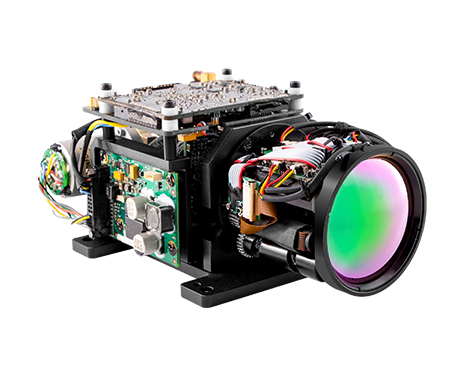Cooled Core

Deskrizzjoni tal-prodott
Cooled core and uncooled core are different in many aspects, including the descriptions below.
TC320MW/TC640MW
TC320MW|TC640MW are mid-wave cooled thermal imaging core with high-quality detectors which can be easily integrated into infrared systems that require extremely long distance detection and adaption to any harsh environment.
TC640SMW
This product cannot only be adapted into extremely long-distance detection, but also it can work in all kinds of bad weather conditions. Try it and you will know how good it is!
1. Basic Concept
The first is a cooled ir camera core. The imaging detector of the cooled thermal systems is equipped with an integrated cryogenic refrigerator unit. This is a device that reduces the detector temperature to the cooling temperature.
In order to reduce the thermal noise below the level of the imaging signal at the scene, the drop in detector temperature is essential. The high definition cooled camera core is the most sensitive infrared thermal core that detects the slightest temperature difference between objects.
They operate in the spectral mid-wave infrared (MWIR) and long-wave infrared (LWIR) bands because of the high thermal contrast in these bands from a physics perspective.
Thermal contrast refers to a change in signal with respect to the target temperature. The higher the thermal contrast, the easier it is to detect scenes where the target temperature does not differ much from the background.
The imaging detectors provided by the uncooled infrared camera core do not require a low-temperature cooled infrared thermal image camera core. The common detector design is based on pyroelectric detectors, which are small vanadium oxide (or polysilicon) resistors with large temperature measurement coefficients, large surface area, low heat capacity, and good thermal insulation.
Changes in the temperature of the scene cause the temperature of the infrared detector to change, which is converted into an electrical signal and processed to produce an image. Uncooled detectors are used in the long-wave infrared (LWIR) band, and targets with similar ground temperatures emit the most infrared heat in that band.

